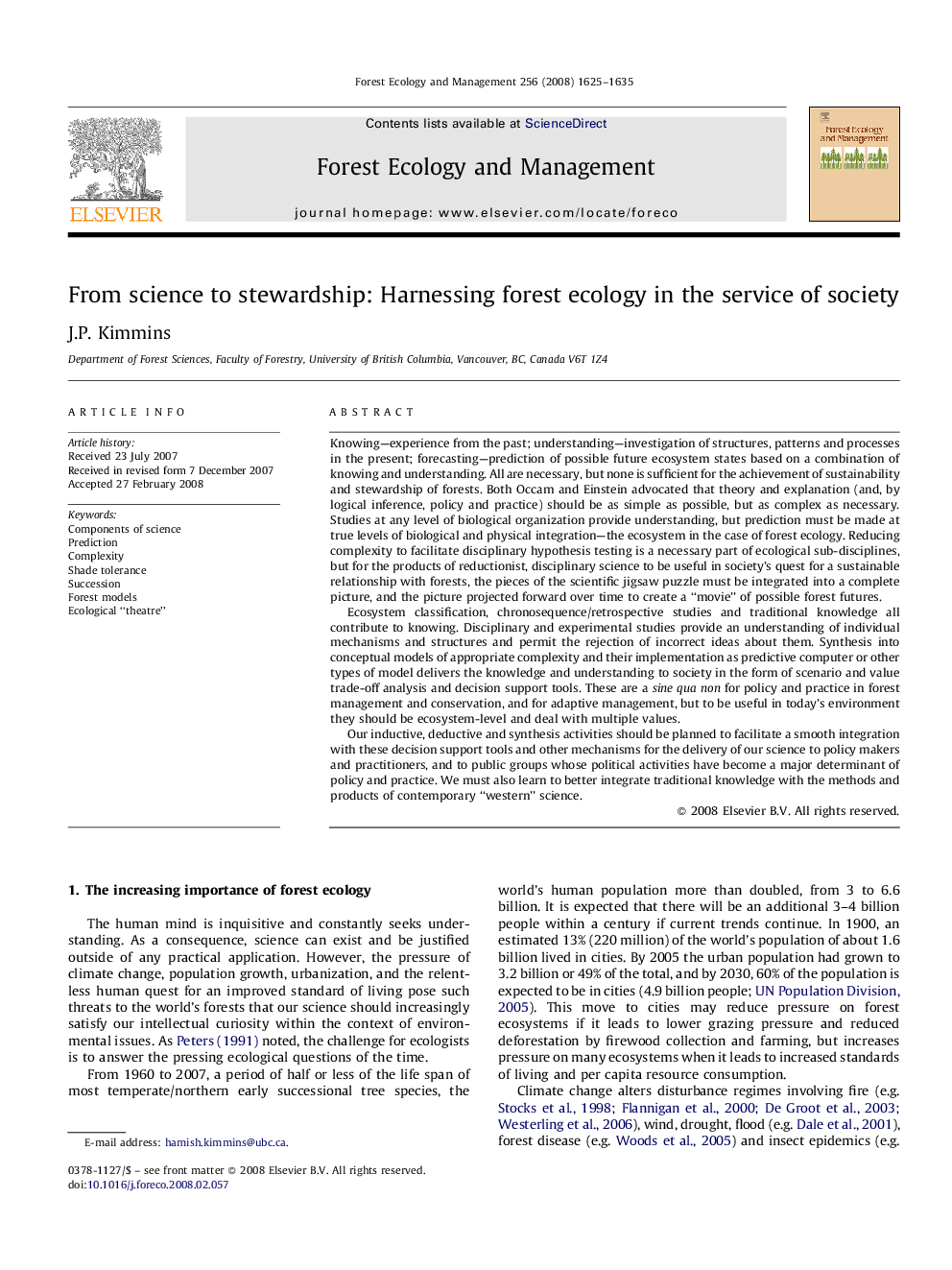| Article ID | Journal | Published Year | Pages | File Type |
|---|---|---|---|---|
| 89447 | Forest Ecology and Management | 2008 | 11 Pages |
Knowing—experience from the past; understanding—investigation of structures, patterns and processes in the present; forecasting—prediction of possible future ecosystem states based on a combination of knowing and understanding. All are necessary, but none is sufficient for the achievement of sustainability and stewardship of forests. Both Occam and Einstein advocated that theory and explanation (and, by logical inference, policy and practice) should be as simple as possible, but as complex as necessary. Studies at any level of biological organization provide understanding, but prediction must be made at true levels of biological and physical integration—the ecosystem in the case of forest ecology. Reducing complexity to facilitate disciplinary hypothesis testing is a necessary part of ecological sub-disciplines, but for the products of reductionist, disciplinary science to be useful in society's quest for a sustainable relationship with forests, the pieces of the scientific jigsaw puzzle must be integrated into a complete picture, and the picture projected forward over time to create a “movie” of possible forest futures.Ecosystem classification, chronosequence/retrospective studies and traditional knowledge all contribute to knowing. Disciplinary and experimental studies provide an understanding of individual mechanisms and structures and permit the rejection of incorrect ideas about them. Synthesis into conceptual models of appropriate complexity and their implementation as predictive computer or other types of model delivers the knowledge and understanding to society in the form of scenario and value trade-off analysis and decision support tools. These are a sine qua non for policy and practice in forest management and conservation, and for adaptive management, but to be useful in today's environment they should be ecosystem-level and deal with multiple values.Our inductive, deductive and synthesis activities should be planned to facilitate a smooth integration with these decision support tools and other mechanisms for the delivery of our science to policy makers and practitioners, and to public groups whose political activities have become a major determinant of policy and practice. We must also learn to better integrate traditional knowledge with the methods and products of contemporary “western” science.
